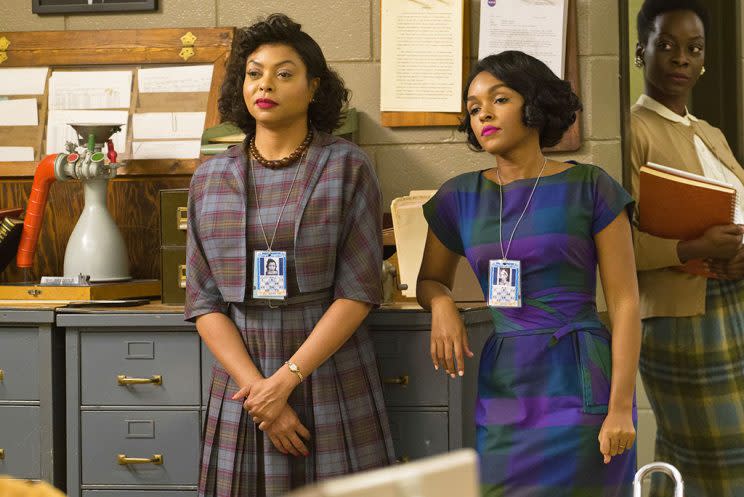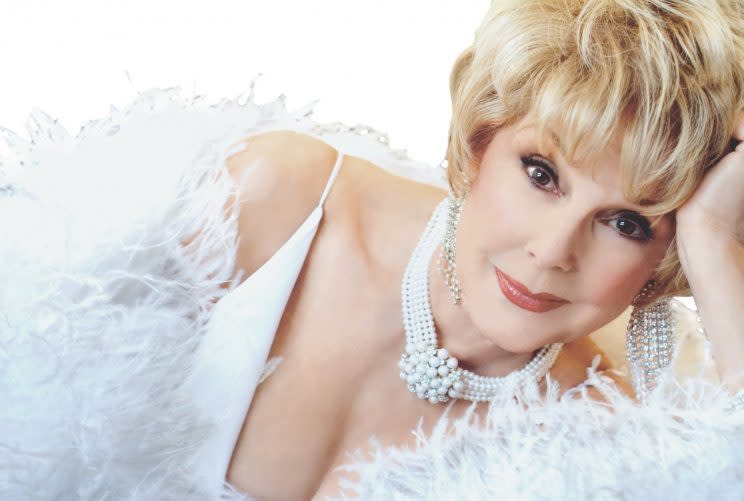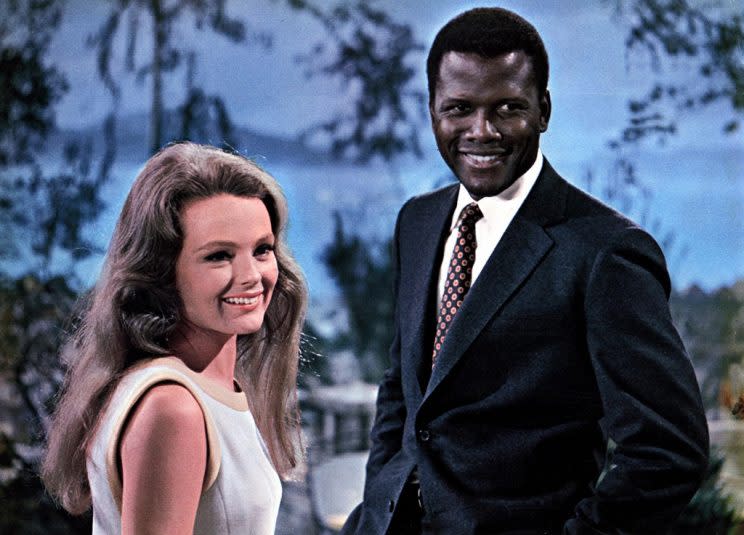‘Guess Who’s Coming to Dinner’ Director’s Widow Praises ‘Hidden Figures’: ‘I Think It Would Have Been a Stanley Kramer Movie’

With $120 million and counting at the box office and the Screen Actors Guild Award for best ensemble cast on its trophy shelf, Hidden Figures is emerging as a long-shot Best Picture rival to the dominant La La Land in the closing weeks of the Oscar race. And now the Theodore Melfi-directed period biopic about three African-American mathematicians who made significant — and previously unheralded — contributions to the space race has picked up another endorsement. In a recent interview with Yahoo Movies, Karen Sharpe — actress and widow of legendary Hollywood director Stanley Kramer — called Hidden Figures “my favorite film of the year,” adding, “It’s beautifully done and beautifully acted. And it’s making a lot of money!”
The 82-year-old Sharpe goes on to say that she recognizes a certain kinship between Melfi’s film and the work of her late husband, who regularly tackled the subject of race in such socially conscious, taboo-busting films as The Defiant Ones and Guess Who’s Coming to Dinner. The latter film, which celebrates its 50th anniversary this year, holds a particularly important place in Hollywood’s often-tortured history of depicting race relations onscreen. (A 50th anniversary Blu-ray Disc will be available on Feb. 7.)

Made at a time when interracial marriage was still illegal in 17 U.S. states, Guess Who’s Coming to Dinner depicts the whirlwind courtship between a black man and a white woman, played by Sidney Poitier and Katharine Houghton, who arrive in San Francisco to meet the bride-to-be’s liberal parents (Katharine Hepburn and Spencer Tracy, in his final film role).
Despite the importance of its subject matter, Kramer intended the film to function as mainstream Hollywood entertainment, which is why it regularly cuts the tension of the central situation with laughter. Hidden Figures is told with a similarly light touch. “I think it would have been a Stanley Kramer movie,” Sharpe says when asked whether her husband would have made a movie like Hidden Figures. “He would have told [this story]. He used film as a weapon or tool to fight against injustice, discrimination, and bigotry. [But he knew] you have to tell them entertainingly,” she says. “If you look at the editing of Guess Who’s Coming to Dinner, it’s brilliantly done. The one-liners are fantastic.”

To preserve Kramer’s legacy in Hollywood, Sharpe established the Stanley Kramer Award the year after his passing in 2001. Handed out as part of the annual Producers Guild of America Awards (PGA), the award specifically honors films that tackle issues that are at the forefront of public discourse, with past winners including Good Night, and Good Luck; Precious; and Fruitvale Station.
This year’s PGA awards were handed out on Jan. 28, and La La Land wound up taking the top prize over Hidden Figures. And while Sharpe says she would have loved to bestow the Stanley Kramer Award upon her favorite film of 2016, she had very personal reasons for choosing this year’s recipient, Loving. Directed by Jeff Nichols and starring Joel Edgerton and Oscar nominee Ruth Negga, the film recounts the true story of Richard and Mildred Loving, the husband and wife who challenged Virginia’s anti-miscegenation laws and won a historic Supreme Court decision in 1967.
As Sharpe points out, the legacy of Guess Who’s Coming to Dinner is closely entwined with the court case Loving v. Virginia. The case was being argued in front of the Supreme Court while Kramer was in the midst of shooting the film, and the decision was handed down in June, six months before the movie arrived in theaters. “That was the reason we made the movie,” Sharpe says. “This year is both the 50th anniversary of Guess Who’s Coming to Dinner and the 50th anniversary of the Supreme Court doing the right thing.”
Watch the cast of Hidden Figures talk about the movie:
Read More:

